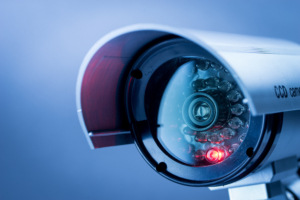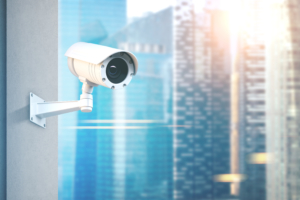CCTV in the Office and Workplace
Everyone wants to feel safe, and this is just as true at the workplace as it is on a dark, lonely street at night. CCTV has, of course, made our streets much safer in the last 30 years. And it’s a form of surveillance which is proving increasingly popular with businesses. Not only can it protect their employees, but also their bricks and mortar presence. However, CCTV has long been criticised for the invasion of privacy that it inevitably brings.
CCTV for Business
There are many reasons why cameras are required in the workplace and the most important ones are:
- Risk Reduction: The mere presence of CCTV technology acts as an instant deterrent to either the threat of crime or misconduct of employees. Say, for example, there are two businesses: one with CCTV cameras and one without CCTV. Which one is more likely to be targeted? Exactly, the one without protection. Additionally, the presence of a camera will deter incidents of internal theft and damage by employees as they will know they are being monitored.
- Monitor Safety: CCTV isn’t just for monitoring people. It can also monitor potential safety incidents. Areas of, for example, a factory where there is a fire risk from equipment can be continually monitored with CCTV. So, in the case of a fire breaking out, this can be picked up and addressed quickly. Lone workers, meanwhile, can benefit from the peace of mind that their safety is being monitored by CCTV.
- Legal Protection: In the case of a security incident, CCTV footage can prove invaluable in the workplace. Providing hard evidence of an intruder’s identity, for example, is a real possibility with CCTV installed. This can help the authorities pursue prosecution and secure recompense for your company. And, whereas anecdotal evidence from employees is difficult to prove, CCTV footage will allow your business to confirm whether internal incidents have taken place.
Installing CCTV Cameras
The rise of technology means that there are an impressive range of CCTV solutions available for the workplace. These are typically divided into two categories: digital and analogue. Digital CCTV allows high-definition video and audio which can be backed up to hard drives via wireless technology. However, you don’t need wi-fi to take advantage of CCTV. Analogue CCTV cameras allow businesses to use cabling to set up CCTV networks over long distances. Naturally, the category of CCTV technology you go for will depend on budget, logistics and need for high quality images.
CCTV Policy in the Workplace
CCTV can provide a wide range of benefits for the workplace, but it needs to be handled correctly. It’s illegal to install CCTV technology without first informing your staff. To respect their privacy, you need to inform them before any CCTV is installed and make sure that, as a business, you adhere to data protection laws. As long as this is all put in to place correctly, then your workplace should benefit from a reduction in crime and a marked increase in positive behaviour from your employees.
For additional related articles please visit our main BLOG page here





